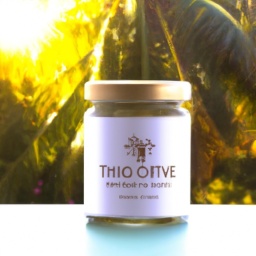Looking for the best organic coconut oils for health and sustainability? Look no further! In this article, we will explore the benefits of organic coconut oil for your well-being and the environment.
Organic coconut oil offers numerous advantages, including improved skin barrier function, hair protection, and antimicrobial properties. However, it’s important to be mindful of its impact on LDL cholesterol levels.
To support sustainability, opt for organic and fair trade options. Stay tuned as we delve into three recommended brands with their unique features and benefits.
Key Takeaways
- Coconut oil is derived from the nut of the coconut palm and is 100% fat.
- It has various health benefits such as improving skin barrier function, providing quick energy, and having anti-inflammatory properties.
- Coconut oil production can be more sustainable than palm oil, with small-scale farmers practicing polyculture and using coconuts for multiple by-products.
- Recommended organic coconut oil brands include Thrive Market’s Coconut Oil, 365’s Unrefined Virgin Organic Coconut Oil, and Dr. Bronner’s Regenerative Organic Certified Coconut Oil.
Health Benefits of Organic Coconut Oil

Organic coconut oil offers a range of health benefits. It can improve skin barrier function, protect hair, and provide quick energy with its medium-chain triglycerides.
One of the most popular uses of coconut oil is for weight loss. The medium-chain fatty acids in coconut oil have been shown to increase metabolism and promote fat burning.
Additionally, coconut oil has antimicrobial properties that can help improve oral health. It has been found to reduce the growth of harmful bacteria in the mouth, which can lead to improved gum health and reduced risk of cavities.
Incorporating coconut oil into your daily routine can be a simple and effective way to support overall health and wellness.
Environmental Impacts & Sustainability of Organic Coconut Oil

Production of coconut oil can have a more positive environmental impact compared to other oils due to sustainable farming practices and minimal waste.
Environmental Impacts & Sustainability of Coconut Oil:
Sustainable farming practices: Small-scale coconut farmers often practice polyculture, planting multiple crops alongside coconut trees. This reduces the need for chemical fertilizers and pesticides, preserving soil quality and biodiversity.
Impact on local communities: Coconut oil production provides income and employment opportunities for many rural communities. It supports small-scale farmers and helps improve their livelihoods.
Minimal waste: Coconuts are used for various by-products, such as coconut water, coconut milk, and coconut flour. This minimizes waste and maximizes the use of the entire coconut.
Seek organic and fair trade options: Choosing organic and fair trade coconut oil supports sustainable farming practices and ensures fair wages and working conditions for farmers.
Thrive Market’s Organic Coconut Oil

Thrive Market’s coconut oil is a popular choice among consumers due to its ethical sourcing practices and versatility in cooking and baking. This organic coconut oil is made from ethically sourced coconuts in the Philippines. It is cold-pressed and unrefined, ensuring the preservation of its natural nutrients and flavor.
Thrive Market’s commitment to ethical sourcing means that the coconuts used in their oil are harvested responsibly, without causing harm to the environment or exploiting workers. By choosing Thrive Market’s coconut oil, consumers can support sustainable practices and make a positive impact on the coconut oil industry.
Whether used for sautéing vegetables, baking delicious treats, or moisturizing the skin and hair, Thrive Market’s coconut oil is a conscious choice for those seeking both quality and sustainability.
365’s Unrefined Virgin Organic Coconut Oil
The unrefined virgin coconut oil from 365 is a high-quality option for those looking for a versatile cooking oil that is also suitable for use in smoothies and stir-fries. This organic coconut oil offers a wide range of benefits when incorporated into your daily routine.
Benefits of using unrefined coconut oil in cooking, skin care, and hair care:
- Cooking: Coconut oil is stable under high heat, making it a great choice for baking, frying, and sautéing. It also contains medium-chain triglycerides, which provide quick energy.
- Skin Care: Coconut oil improves skin barrier function, moisturizes, and has antimicrobial properties. It can be used as a natural moisturizer or as an ingredient in homemade skincare products.
- Hair Care: Coconut oil protects hair from damage, promotes hair growth, and can be used as a deep conditioning treatment or as a natural hair mask.
How to incorporate unrefined coconut oil into your daily routine:
- Cooking: Use coconut oil as a substitute for butter or vegetable oils in your recipes.
- Skin Care: Apply a small amount of coconut oil to your skin after showering to lock in moisture.
- Hair Care: Massage coconut oil into your scalp and hair before washing for a nourishing treatment.
Dr. Bronner’s Regenerative Organic Certified Coconut Oil

Dr. Bronner’s Regenerative Organic Certified Coconut Oil is expeller pressed from carefully dried coconuts, ensuring a high-quality product. This brand stands out because of its commitment to regenerative agriculture practices and ethical sourcing and production methods.
Regenerative agriculture focuses on improving soil health, biodiversity, and ecosystem resilience. By implementing these practices, Dr. Bronner’s supports sustainable farming techniques that help restore and enhance the environment.
Additionally, the company ensures that the coconuts used for their oil are sourced from ethical producers who prioritize fair trade and worker welfare. This dedication to sustainable and ethical practices makes Dr. Bronner’s Regenerative Organic Certified Coconut Oil an excellent choice for consumers who value both the quality of their products and the impact of their purchasing decisions on the environment and society.
Benefits of Organic Coconut Oil for Health and Wellness

Consumers can enjoy a range of benefits for their health and wellness by incorporating organic coconut oil into their daily routines.
Uses of Organic Coconut Oil:
- Cooking: Organic coconut oil can be used for baking, frying, and sautéing due to its high smoke point and stability under high heat.
- Baking: It can be used as a healthier alternative to butter or vegetable oils in baking recipes, adding a subtle coconut flavor.
- Skincare: Organic coconut oil can be used as a natural moisturizer for the skin, helping to improve hydration and reduce dryness.
- Haircare: It can also be used as a hair mask to condition and nourish the hair, promoting shine and reducing frizz.
The Difference between Refined and Unrefined Organic Coconut Oil:
- Refined coconut oil undergoes a process of bleaching and deodorizing, resulting in a neutral flavor and higher smoke point.
- Unrefined coconut oil, also known as virgin or extra virgin coconut oil, is extracted without any chemical processes, retaining its natural aroma and flavor.
Incorporating organic coconut oil into cooking, baking, and skincare routines can provide numerous health benefits and add a touch of tropical flavor to everyday dishes.
Frequently Asked Questions
How Does Organic Coconut Oil Compare to Other Types of Cooking Oils in Terms of Health Benefits?
Organic coconut oil offers unique health benefits compared to other types of cooking oils. It contains medium-chain triglycerides that provide quick energy and has anti-inflammatory, antimicrobial, and antioxidant properties.
However, it may increase LDL cholesterol levels, increasing the risk of heart disease. When compared to other oils, coconut oil is more stable under high heat, reducing the formation of harmful compounds during cooking.
It is important to consider moderation and individual dietary needs when incorporating coconut oil into one’s diet.
What Is the Recommended Daily Intake of Organic Coconut Oil for Optimal Health Benefits?
The recommended daily intake of organic coconut oil for optimal health benefits varies depending on individual needs and dietary preferences. While coconut oil can provide certain health benefits, it is important to consume it in moderation due to its high saturated fat content.
The American Heart Association suggests limiting saturated fat intake to no more than 13 grams per day. It is advisable to consult with a healthcare professional or registered dietitian to determine the appropriate amount of coconut oil to include in a balanced diet.
Are There Any Potential Side Effects or Risks Associated With Using Organic Coconut Oil?
Using organic coconut oil can have potential side effects and risks. While it’s generally considered safe for most people, some individuals may experience digestive issues such as diarrhea or stomach discomfort.
Coconut oil is high in saturated fat, so excessive consumption may increase cholesterol levels and the risk of heart disease. It’s also important to note that coconut oil is calorie-dense, so using it in excess may contribute to weight gain.
Moderation and consulting with a healthcare professional are recommended.
Can Organic Coconut Oil Be Used as a Substitute for Butter or Other Cooking Fats in Recipes?
Organic coconut oil can indeed be used as a substitute for butter or other cooking fats in recipes. It provides a healthier alternative in baking recipes, as it is cold-pressed and unrefined.
It can also be used in savory dishes as a substitute for butter, offering a range of health benefits. Organic coconut oil is versatile and can be used for cooking, baking, and sautéing.
Its unique properties make it a popular choice for those seeking a healthier cooking option.
How Does the Taste of Organic Coconut Oil Differ From Regular Coconut Oil?
Organic coconut oil and regular coconut oil have a similar taste, as both are derived from coconuts. However, some people claim that organic coconut oil has a slightly milder and more natural flavor compared to regular coconut oil.
When cooking with organic coconut oil, it is important to use it in moderation, as it has a distinct taste that may overpower certain dishes.
It is also important to consider the smoke point of organic coconut oil, which is around 350°F, making it suitable for light sautéing and baking.